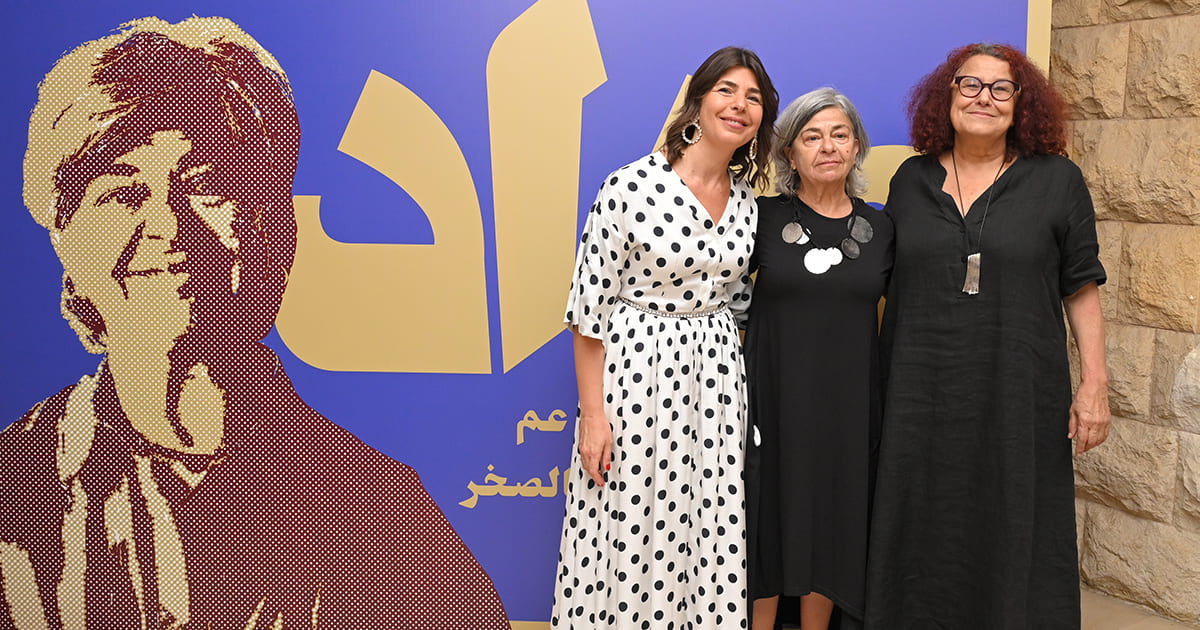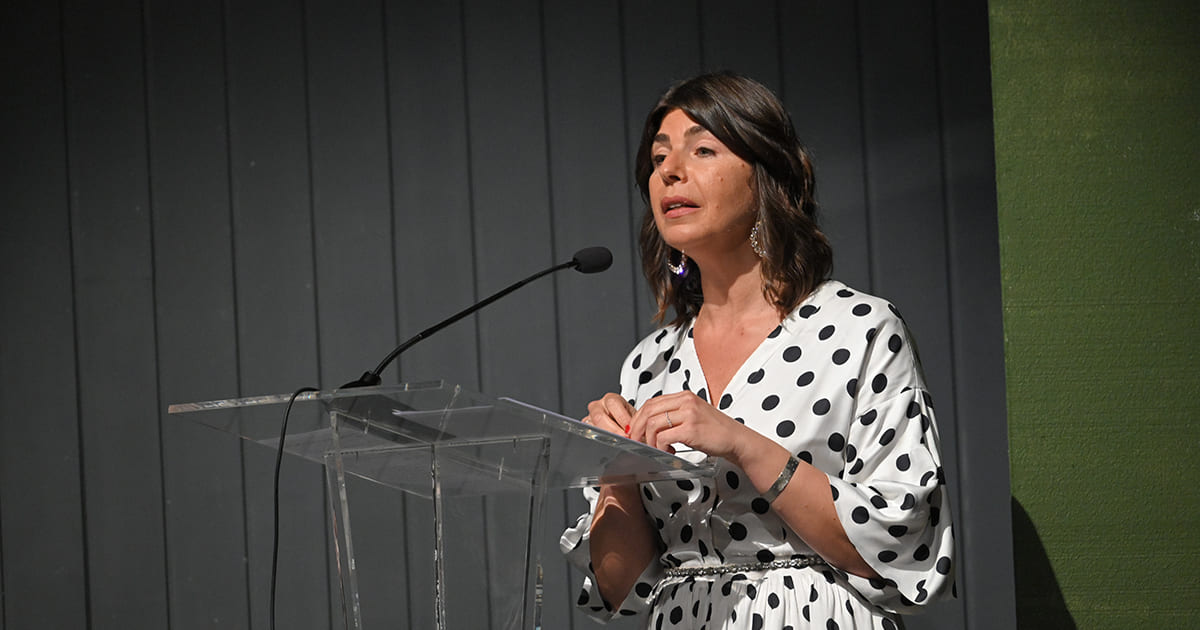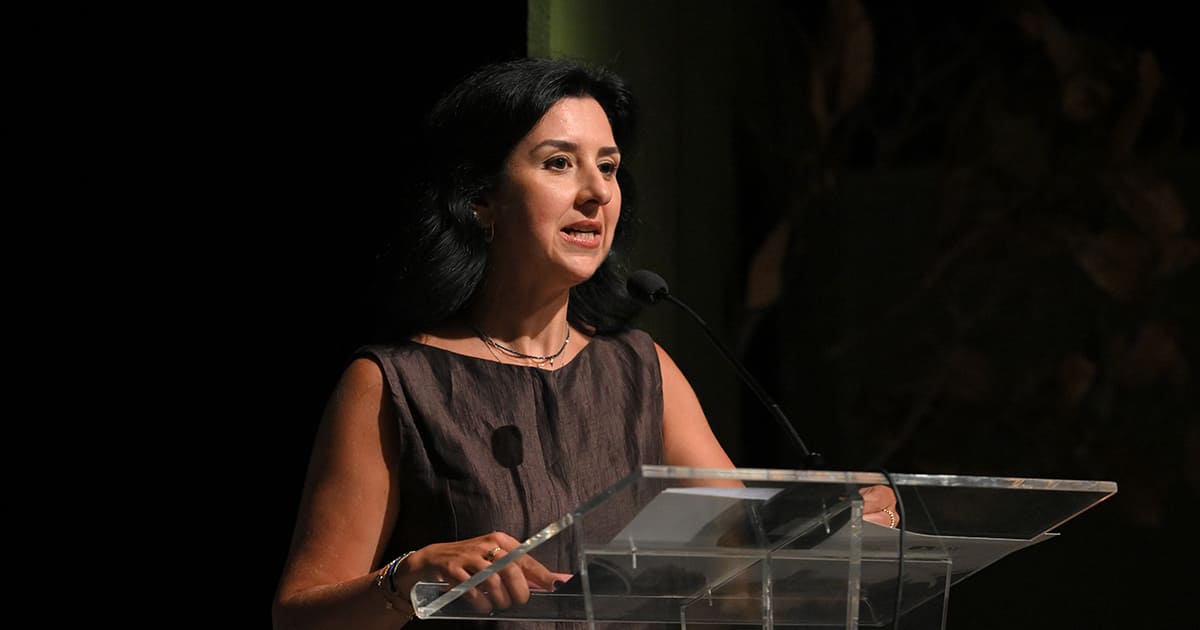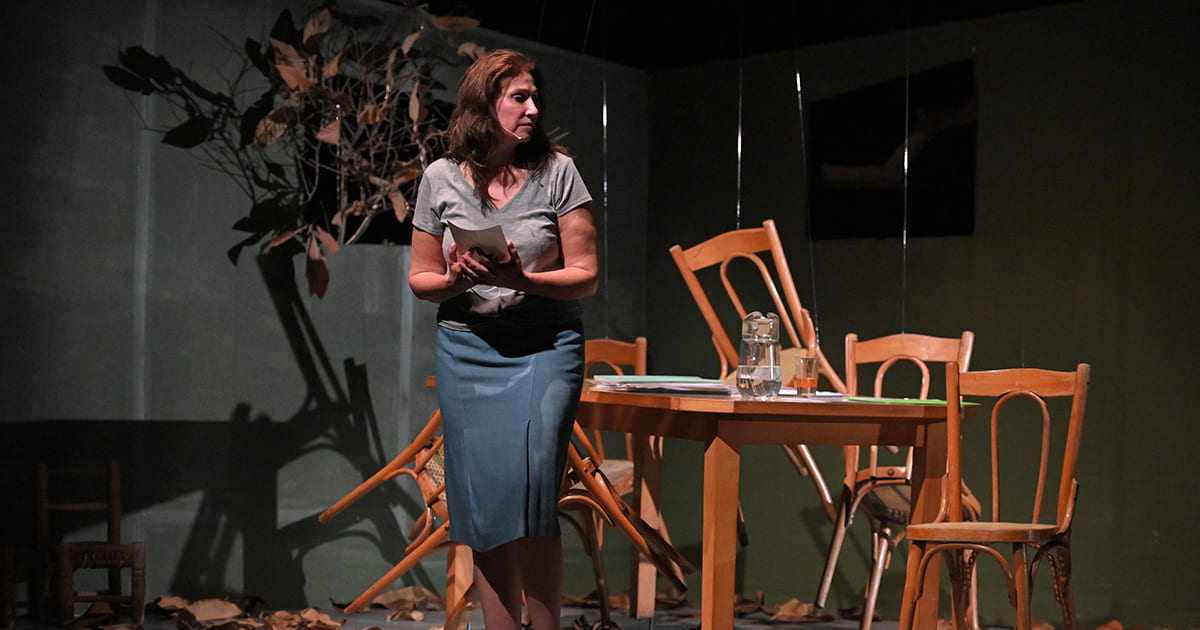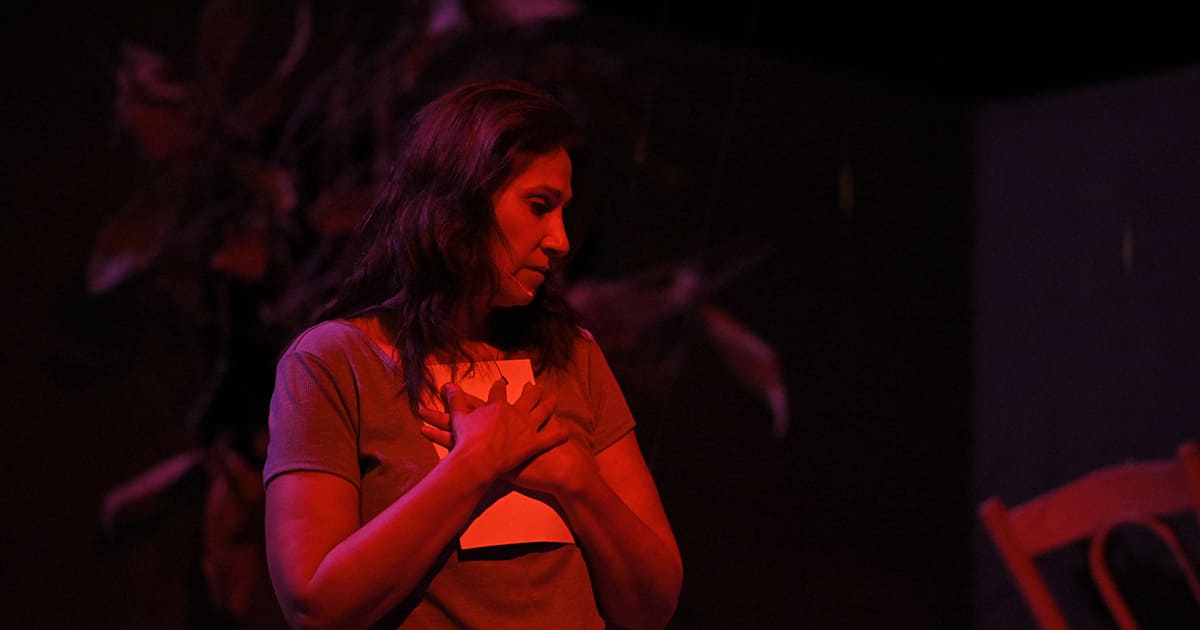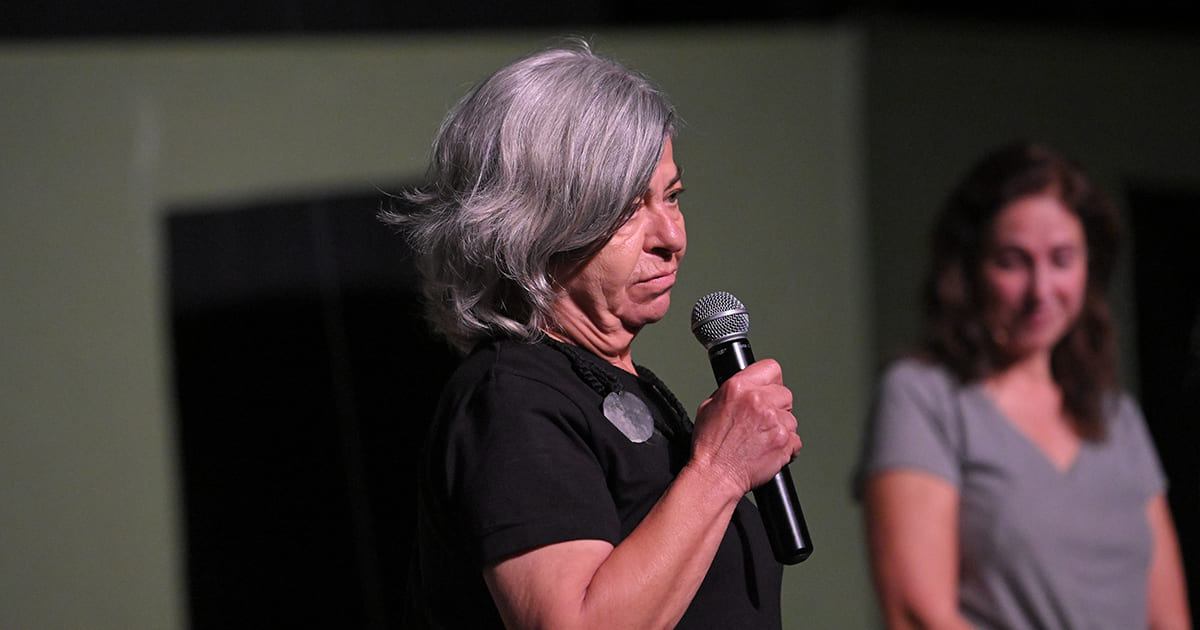Wadad Halwani: Mourning, Memory and Movement
LAU’s Arab Institute for Women honored the activist through a theatrical tribute spotlighting her fight for truth and justice for Lebanon’s disappeared.
For 50 years, LAU’s Arab Institute for Women (AiW) has stood at the crossroads of gender justice and social engagement. It has consistently advocated for challenging the structures that perpetuate oppression, both in academia and grassroots movements, by highlighting the lived realities of women across the Arab world.
As part of a series of events marking its 50th anniversary, the AiW turned the spotlight on transformative leader, activist and founder of the Committee of the Families of Kidnapped and Disappeared in Lebanon Wadad Halwani, through a play titled Wadad: An Ant That Digs in Stone.
Performed over four days from June 10 to 13, 2025, at Irwin Hall, Beirut campus, and directed by former LAU Associate Professor Lina Abyad, the play documented the life of Halwani throughout the dark days of Lebanon’s civil war, following the kidnapping of her husband, Adnan Halwani, from his home in 1982.
The disappearance of more than 17,000 individuals without a trace or accountability during that war became Halwani’s catalyst for a lifelong mission against impunity.
“I’ve always seen Wadad as a giant in a small body; an inspiration who shuns titles and refuses to be boxed into categories; and above all, a national treasure to this country’s bloody history,” said AiW Executive Director Myriam Sfeir. “Thanks to her determination and patience, she kept the case of the disappeared alive in our national conscience.”
The play dramatized Halwani’s transformation from a grieving widow to an advocate for justice, whose infinite defiance and activism drove her to persevere in confronting bureaucratic and institutional indifference. The title itself stands for the Sisyphean nature of her work as an ant, small and outwardly insignificant, chipping away at the monolith of state neglect.
Wadad: An Ant That Digs in Stone is the third event in a series organized under the Women in Leadership Program, supported by a grant from the United Nations Development Programme (UNDP) and UN Women, with funding from the Government of Canada.
“We continuously work to highlight pioneering women who lead change with determination and resilience,” said Chief of Staff and General Counsel at LAU Nour Hajjar, who spoke on the opening night on behalf of LAU President Chaouki T. Abdallah. Through campaigns aimed at honoring women both within and beyond the university, “we are committed to spotlighting transformative female leadership that strives for equality and social justice across all sectors,” she said.
In a Q&A following the performance, Halwani spoke of the impact of art on social change. “In a region where histories of violence are often suppressed, this is another form of resistance,” she noted.
Collaborating with AiW was an honor, she added, as the institute shared her belief that justice is as much about memory as it is about legal accountability.
“My efforts, along with my fellow activists who suffered the same loss, were not just about recovering bodies or confirming deaths, but rather about restoring personhood to those who had been reduced to mere statistics,” she said.
Dr. Abyad fully supported such rhetoric. For her, the timely production of this play, as Lebanon commemorates 50 years since the outbreak of the war, is another form of protest against allowing the disappeared to vanish twice, first from their families and then from public consciousness.
“When I was first approached by Myriam Sfeir to direct this play, I did not hesitate,” said Dr. Abyad. “My role here was to channel Halwani’s voice to speak on this woman’s determination to stand in the face of both inequality and the mechanisms that sustain it, whether in laws, cultural norms, or the deliberate erasure of the past.”
The play is set to tour schools and universities across Lebanon to spark dialogue and drive further engagement toward shifting policies, with AiW’s ultimate goal of amplifying women’s voices through education, research, and the arts.
The play was also performed in Beit Beirut on June 14 and 15, 2025.
